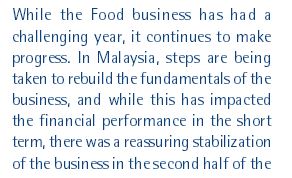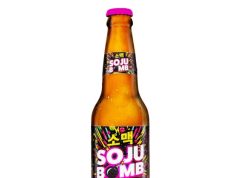Dairy Farm International, the operator of Giant hypermarket and supermarket in Malaysia, said this in its 2013 annual report. We do not know the exact revenue of Giant in Malaysia but looking at the statement, it does show the food business in Malaysia in 2013 was facing challenges.
Giant is a strange beast. It still has stores in run down shopping malls or malls with low footfall. Examples of these include South City Plaza in Serdang, the mall occupied by Giant Superstore Taman Connaught and Viva Home, which is a one-stop furnishing mall.
Food retailers in Malaysia are facing problem growing their revenues. Even the likes of Tesco, which is viewed by many as a successful hypermarket chain, only reported 1.83% growth in revenue in the 12 months to end-February 2014, the slowest growth in 8 years.
What about convenience store? The revenue growth of 7-Eleven slowed to 6% in 2013, the slowest in three years. Despite revenue growing to a single digit, net income managed to grow at an outstanding rate of 27.9% in 2013 due to the shift towards higher margin products.
Based on publicly available information, Aeon Big revenue increased by only 4.4% in 2013 to RM 1.66 billion, which shows once again 2013 was a bad year for food retailers.
Raising the profitability level is the key now as revenue growth grinds to a halt. That is why Tesco is heavily focusing its attention on private label, which offers higher margins. Aeon and Aeon Big have renewed push into private label, while Dairy Farm International’s Cold Storage has made available Casino private label range.
|
|
Collectibles is also another weapon in the arsenal. Examples include Tesco’s Heroes and Friends and Aeon Big’s Doraemon figurines.
The emerging minimart scene such as KK Mart and 99 Speedmart has intenstified competition. The growth of neighborhood proximity shopping has drawn customers away from big-box retailers. For daily top ups, consumers including foreign workers are choosing minimarts only going to the big-box shops during the weekend.
The rise of premium homegrown supermarkets such as Jaya Supermarket and Village Grocer have also attracted well-to-do consumers and expats. The cheap and cheerful NSK and Econsave, meanwhile, have cannabalised Tesco and Giant’s price sensitive customers. NSK in particular has been very successful in attracting price-sensitive consumers with a wide array of cheap vegetables and fresh food.
Malaysia’s food retailing sector is becoming increasingly difficult and key players will receive another blow as the GST starts to be implemented on 1 April 2015.
The key future trends for Malaysia’s food retailing sector are:
1.) Proximity shopping with big-box retailers started to move into this space
2.) More private label
3.) Online grocery to attract consumers not willing to make the commute to the outlet
4.) Stores adapting to local need eg. price leader in produce and fresh food
5.) Going upscale with more premium supermarkets
6.) Making grocery shopping an experience where it serves as a one-stop destination for eating, shopping and experience
7.) More collectibles on their way to drive footfall
8.) Supermarket targeting certain ethnic group














